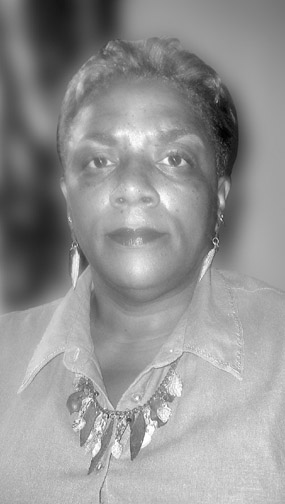Denise Smith-Jones

In 1992, I was faced with two threatening questions. “What option was I going to choose in regards to being diagnosed with breast cancer?” And, as a divorced single mother, “Was I going to be able to raise my daughter?” I was 37, scared and frightened. I knew that the decisions I had to make would be very important ones.
I chose to have a Modified Radical Mastectomy, which is surgery to remove the whole breast, some small chest muscles and some lymph nodes in the armpit. This was followed by reconstructive surgery (the rebuilding of the breast after a Mastectomy), plus six months of chemotherapy. At this point, I thought I would be cancer free and had confidence to fully recover from breast cancer.
Six years later, I had the wonderful opportunity to work with the National Breast Cancer Coalition (NBCC). It was there that I realized I was not alone in the fight to eradicate breast cancer. As a grassroots organization, which brings attention to the members of Congress and the Administration of inadequate funding for breast cancer research. For the areas of public policy, science, industry, and advocacy, NBCC has changed the world of breast cancer.
As my involvement with NBCC reached the three and a half year mark, I had started to experience deep chest pains. After seeking medical attention and being totally frustrated in not knowing why I was experiencing this pain, it took a year and a half for the doctors to diagnose me in December of 2001 with Metastic Breast Cancer. This type of cancer occurs when the breast cancer has traveled to other parts of the body: it often spreads to the bones, lungs and liver. This type of cancer is also known as stage IV breast cancer. Once again, I was forced with making another decision on treatment options. This time, I elected to participate in a clinical trial. It is a research study where new treatment or other health intervention is tried out on people. Clinical trial tests how well and/or how safely a new treatment works.
This has been a true learning experience. I realized some important guidelines. For example, because I was a breast cancer survivor, a CT scan should have been given to me at the first mentioning of deep chest pain. I am very angered at the fact that it took so long for me to be properly diagnosed. Another important fact is, if you live in the United States, not all health care is correct for you. Even with good doctors and good insurance, some breast cancer patients receive very poor care. That is why it is important to have skilled doctors and nurses who give practiced breast cancer care in a respectful way and understand the latest medical evidence. If you ever find yourself in this dilemma, please take your time to do the research. Your health is vital. I have been able to raise my daughter successfully. She is now a junior in college. It is through the support of my daughter, mother, father, sisters, close family and friends and my spiritual connection with God that’s given me the strength to know I will recover from this experience.
“We also rejoice in our sufferings, because we know that suffering produces perserverance: perserverance, character, and character, hope.”– Romans 5:3-4

